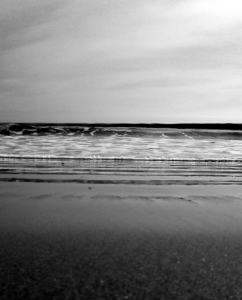Remembering Alan Kurdi – image of drowned refugee boy melted hearts
Ten years ago this month the shocking image of the lifeless body of two-year-old Syrian boy Alan Kurdi lying face down on a Turkish beach focused global attention on the refugee crisis and the desperate and dangerous journeys migrants were taking in attempts to reach Europe.
Alan’s brother Galip and their mother Rihan were among the five people who drowned on September 2, 2015, when a people smugglers’ boat taking them from Bodrum to the Greek island of Kos sank in the Mediterranean.
Millions of Syrians were forced to flee the country after the eruption of civil war in 2011, when discontent with the regime ruled by Bashar al-Assad triggered large protests that drew a violent crackdown. 
Most Syrians went to Turkey and other neighbouring nations, but many fled to Europe during the migration crisis. According to the UN’s migration agency IOM, more than 3,700 migrants died while trying to cross the Mediterranean in 2015.
Refugee charities saw a surge in donations following the publication of the photo of Alan.
But a decade on from his death, advocates and refugee charities are calling on governments and politicians to show more compassion towards refugees amid a wave of anti-migrant sentiment across the globe.
Political parties in Europe, including Reform UK, have called for the mass deportation of asylum seekers, while the language used to discuss refugees has become increasingly inflammatory and divisive.
The Trump administration in the US actually started deporting migrants while at the same time axing funding and aid for programs that support refugees. Most recently, it has ended temporary protection status for Venezuelans fleeing poverty and their repressive government.
On his first day back in office, Trump signed an executive order cancelling flights for Afghan refugees—including those reuniting families. In June, he suspended the US Refugee Admissions Program, leaving countless applicants in a bureaucratic void.
In the same month, Trump passed his “Big Beautiful Bill,” increasing fees for asylum seekers and placing a travel ban on Afghans with immigrant or non-immigrant visas.
Within the US, programs supporting refugees have also been decimated.
Refugee support agencies have lost their funding and refugees and asylum seekers are no longer eligible for Supplemental Nutrition Assistance Program (SNAP), commonly known as food stamps, which provides basic access to nutrition.
In Hungary, the far-right government of Prime Minister Viktor Orban, has taken one of the toughest approaches to migration. The country has built fences along the border with Serbia to stop asylum seekers.
The UK plans to make it harder for refugees to bring family members into the country.
The EU recently adopted its long-negotiated New Pact on Migration and Asylum, a delicate compromise which has left many troubling cracks and grey areas in the foundations of the EU’s migration system.
Ther US-based International Rescue Committee (IRC) says the pact requires careful monitoring and safeguards in its implementation to avoid even greater human rights violations at Europe’s borders.
It warned against a further rollback of people’s right to seek asylum, more detention at borders, inadequate protection of children, increased pushbacks, and more attempts to “outsource” asylum processing.
Meanwhile, Italy has signed a new deal with Albania to externalise asylum processing, in what IRC said was another worrying shift toward outsourcing responsibility and limiting access to protection on European soil.
A decade on from Alan Kurdi’s death, and the image that touched so many hearts, things are bleaker than ever for people seeking sanctuary around the world.
President of the non-profit civil rescue organisation Sea Eye Gordon Isler told media that it was “shameful” that European governments had failed to create safe passage for refugees a decade on from Alan’s death.
“European governments have not only failed to establish a state-run sea rescue program but are also actively obstructing the work of humanitarian organisations,” he said.












